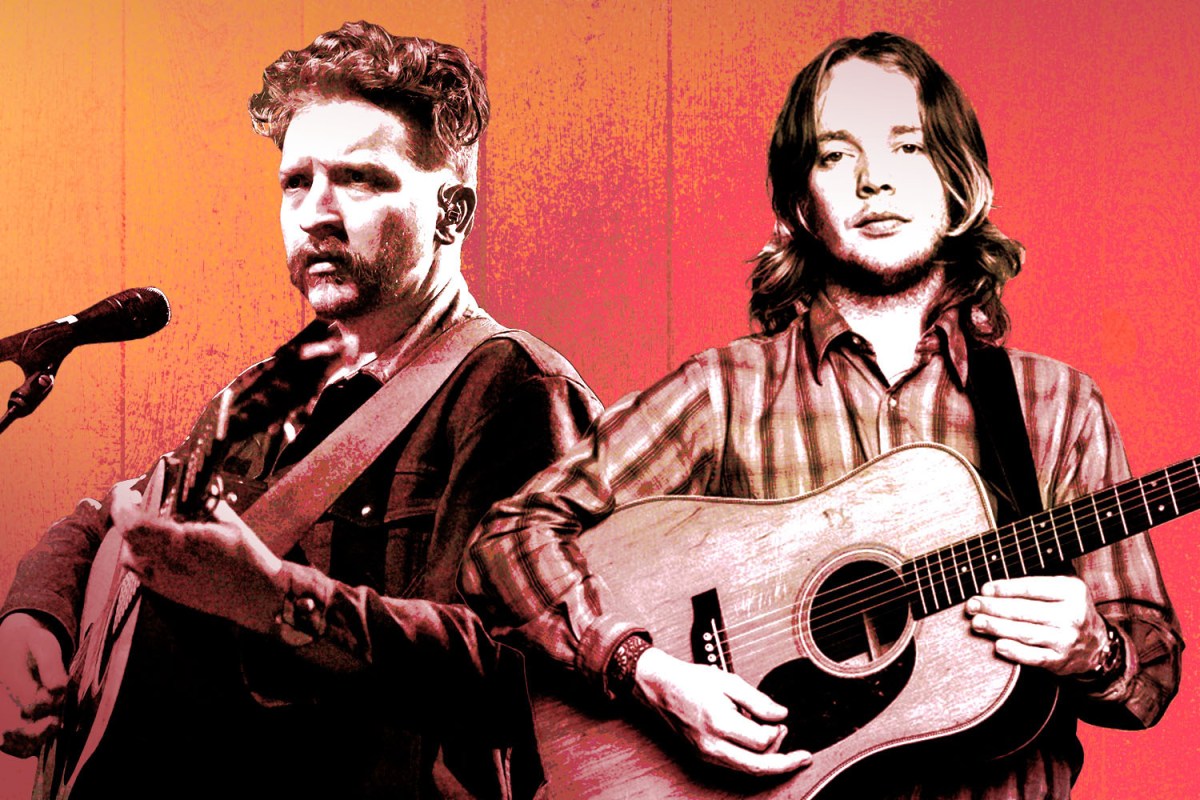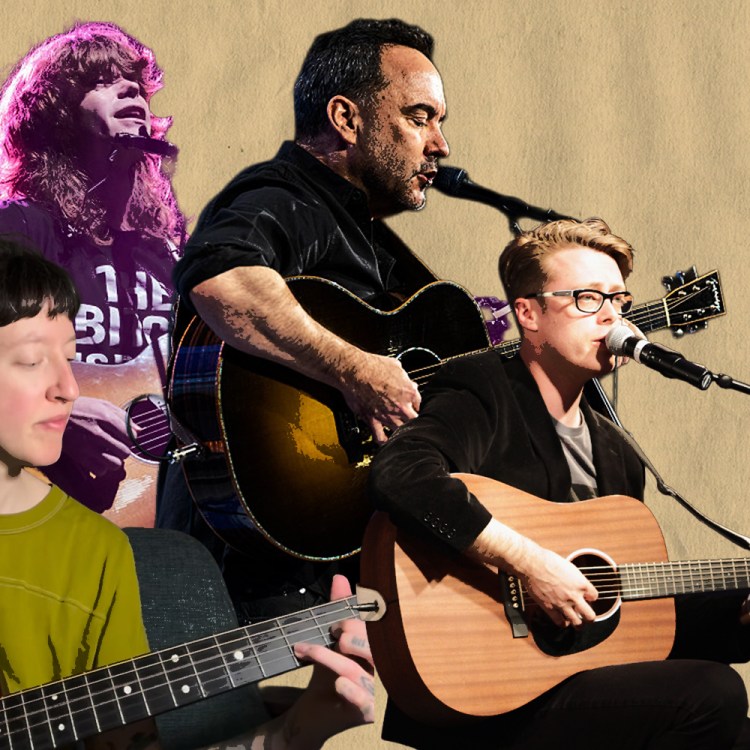Sure, Beyoncé has become Queen of the Grammys, thanks to her 2022 album Renaissance, and Taylor Swift set some improbable sales records with her 2022 album Midnights, but what’s up with the recent surge in popularity for old-timey string music?
Even as pop’s biggest stars have made their presence felt, the past year has found a particularly receptive audience for new music with an old-school Americana bent. New bluegrass and gospel albums from artists like Billy Strings and Tyler Childers, respectively, stirred up their own kind of buzz. Strings last year released Me / And / Dad, a collection of traditional and vintage bluegrass songs that he recorded with Terry Barber, his stepfather. Childers released Can I Take My Hounds to Heaven, which presents eight songs in three different instrumental configurations, dubbed “Hallelujah,” “Jubilee” and “Joyful Noise.”
The buzz they generated is big enough that Strings is embarking on a winter tour that includes multiple dates in arenas. Meanwhile Childers is looking at a string of sold-out shows this spring and summer in spacious venues, including New York City’s Radio City Music Hall (almost 6,000 capacity) and the Greek Theatre in Berkeley, Calif. (8,500 capacity).
Those are significant bookings for a couple of guys who could have comfortably performed alongside the Louvin Brothers circa 1954. Yet despite the throwback vibes, they’re thoroughly modern artists, attracting an audience that transcends No Depression roots-music circles by drawing from the jam crowd and beyond. The rapper Post Malone, one of Strings’ high-profile fans, found him on Instagram, for example, before joining Strings onstage last year to sing Johnny Cash’s “Cocaine Blues.”
The Best Movies, TV, Games and Music for February
It’s time to experience “Cocaine Bear.” Plus: The unexpected return of Adam Scott’s best comedy series.
“Folk music hits a chord as it always has but with a new potency because people are hungry for truth, and they are hungry for things that they know to be real,” says Alex Mallett, director of development for Folk Alliance International, a folk-music advocacy group. “When you see Billy Strings play guitar, you know that it’s real. The notes are real. His sound is real. When you hear a great song, whether from Molly Tuttle or Kendrick Lamar, its message rings true because they are telling their truth.”
That’s, um, true, but it doesn’t answer a broader question: why now? Bluegrass-leaning acts from Bill Monroe to Sam Bush to Nickel Creek have been telling their truth for generations, but they’ve rarely reached audiences as big as the ones that Strings and Childers are drawing now. Strings himself chalks it up to the sense of community that he and his band have forged with listeners.
“We’re never going to be a band that sells a million records. We’re just a band that’s going to sell a million tickets — one show at a time,” Strings (real name: William Apostol) told Rolling Stone in 2019. “That’s what we do. We’re a live band. Our thing is our show. We’re going to have real fans, that really buy tickets, that really come to the show, that really are part of this family, which is what it feels like right now.”
As Mallett notes, it’s not just that acts like Strings and Childers are telling their truths: they also feel real. They convey an honesty in their personae as much as in their music, in that what you see is what you get.
“There aren’t a lot of artists who were kind of going out there, who are in these big venues, who are connecting with audiences in a raw, somewhat stripped-down way, telling tales of the heart and tales of the culture,” says Dean Budnick, co-editor-in-chief of Relix magazine, which put Childers and his band, the Food Stamps, on the cover of its January/February issue. “There’s no narcissism. There’s no real ego. It’s not exclusionary, it’s for everyone. There’s a spirit of collaboration, both with other musicians on the stage, with the audience — you sort of feel drawn in.”
They’re not the first roots musicians to convey a feeling of honesty, of course, but they’re the first to do it through a pandemic, when a sense of connection has been missing often enough that finding one has often felt like unearthing a precious commodity. As the live music business mostly went dark in 2020-21, acts like Strings adapted to circumstances in a way that their pop-star contemporaries couldn’t. Without technology-reliant blockbuster stage shows that are impossible to scale down, Strings could — and did — go play in fields and parking lots for socially distanced fans. Simply existing in a visible way helped bring attention to their music at a time when a lot of people were desperate for distractions.
“It really sort of takes you back to the origins of string music, when it was performed in parlors. People played it with their families. Before there was radio, before there were records, that’s how people connected,” Budnick says. “Billy and his band, they basically could do what they do. And they seized that moment. Not for any sort of crass commercial reasons — I think they did it because they needed to do that, that made them feel good. And they connected and connecting made them feel good.”
It doesn’t hurt that Strings is an excellent musician, and so is Childers. Many listeners who came during the pandemic for the sense of community seem to have stayed for the virtuosity.
“It’s always easy to get away from the fact that, listen, the music connects,” Budnick says. “The music comes across at a time when people are sort of keen to listen to music and to support artists who, who are out there projecting that their views in a really honest way.”
This article appeared in an InsideHook newsletter. Sign up for free to get more on travel, wellness, style, drinking, and culture.

























